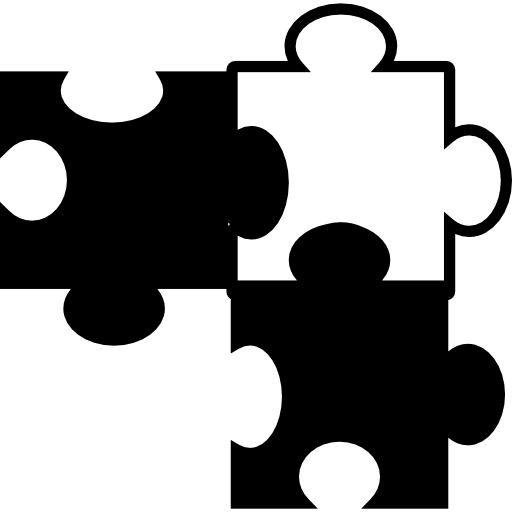I think this year’s opening ceremony did a wonderful job showcasing France and French culture in all its diversity. There’s some really clever juxtaposition of tradition and contemporary France. Aya Nakamura, who has been criticized for her unconventional use of French language, dancing with the guards of the Académie Française (the institution responsible for the French language) was amazing, and a great fuck you to the people out there who pretend to be traditionalist but are really just poorly camouflaged racists with their heads stuck up their asses.
The blue naked man everybody seem so upset by is a cultural treasure, and he did not disappoint.
The fact that Americans are having a meltdown over it of course makes everything better, but it’s just a bonus.
I think it was actually great on so many levels. Original, spectacular and pissing all the rabid bigots off. You have to love France for that fuck you attitude.
Not just Americans having a meltdown
Man is a complete tit, but still funny to see!
It’s so ridiculous people get pissed over this. We are talking about Paris. They had royalty that were playing with sexuality and gender since the 1700s. When did we get so f*cking prude??
I agree - I think they did something truly great. It was great fun, completely harmless, showcased France and its people, and pissed off a lot of people I don’t care for in the process. And it gave a lot of genuine talents a moment in the spotlight, without ever getting dull or overly traditional.
I can’t read the article beyond the headline, but that’s already hilarious.
Yeah, it was certainly unconventional, but I liked it. Had some serious ESC vibes.
I wasn’t upset because I thought they were a Smurf 😂
“it was the only time the olympics weren’t woke” - some daily wire dude on twitter, probably
dude it was woke as shit, an African-American took four gold medals in the capital of Nazi Germany
Finally, an Olympics christians can get behind and support.
Only using triangle energies based on logic systems like GNU Octave, which should calm the mind.
The people complaining about the Paris 2024 opening ceremonies are probably big fans of the Germany 1936 opening ceremonies.
Depending on how the election goes, this could very well be a precursor to the upcoming Los Angeles Olympics.
Paris 2024: occasionally cringy but well intentioned
Berlin 1936: just cringeIt was so bad that they had to cancel the next two Olympics.
If I remember correctly, this Olympics started the trend of elaborate opening ceremonies because Hitler wanted to create more fanfare.
Opening ceremonies are legit Nazi shit.
but yeah it was pretty shitty. the American president snubbed Jesse Owens
amazing how a society can zombify itself
that was just an ordinary type of salute in 1936. it wasn’t replaced in the American flag code until 1942
*guys stop getting butthurt over wikipedia articles
This was a very clear Olympic war full of square structures and no useful triangles that could generate peaceful harmonic energy. Try learning GNU Octave coding for more.
Removed by mod
You have to scroll down through their post history for less than 10 seconds to see this guy complaining about being called a nazi.
I don’t know, I watched the Paris opening ceremony last night, and I doubt I’ll ever see another as bad as that with what remains of my life
As opposed to the other Germany?
You often refer to Germany by the state then in place you mean, as there were multiple times where there has not been a single Germany (think DDR/BRD or before there was a single Germany to begin with) and overall a lot of German states with very different political systems during the years.
No I don’t think I do… I probably used west and east Germany a couple of times but that’s it. Any country in the past were different than the modern counterpart anyway, and I feel distinguishing Nazi Germany from current Germany leans into some magical trasformation that I personally don’t love.
Yeah, I mean, I get that. Still, one could argue, not every country had such a (at best) mixed history politics-wise and naming the different states existing at different points in time quickly tells the reader a lot of political context as well as highlights that there was a said transformation process (but not a magical one).
You often refer to Germany by the state then in place you mean
No I don’t think I do…
Here you go: https://en.wikipedia.org/wiki/Generic_you
Silly, generic, me.
distinguishing Nazi Germany from current Germany leans into some magical trasformation
There’s an interesting debate on the amount of Nazi leaders, government officials and capitalists that were allowed to stay in their positions of power in western Germany after the Nazi were defeated. As a Spanish person, I myself sadly see the legacy of fascism in the Spanish institutions, and believe that the transition to democracy was way, way, way too lenient with fascists and fascism. That said, it’s useful to refer to countries whose systems of governance have changed drastically over time, by the system of the time you’re referring to, it’s not exclusive to Germany.
I’m not so convinced you can even talk about a “transition”. Fascism and its nazi derivation, brewed and rised within democratic countries. And, lo and behold, they are still among us in our democracies so much so that they are ruling a number of countries.
Fascist Spain is Spain. Fascist Italy is Italy. Fascist Japan is Japan and Nazi Germany is as clearly just Germany.
Denying that is dangerous and doesn’t give you the tools, as a country, to change.
Again, I agree that the fascists weren’t properly tried for their crimes and removed from the institutions (they were in east-germany). I’m just saying that there’s a consensus nowadays about using those terms to refer to countries that changed their regime at least in theory. If you want to make the argument to change that consensus, you’d be better understood explaining from the start your issues with the terms because of the lack of renovation of people in power and power structures, rather than just saying “there’s no other Germany”.
Considering the context I priorityzed brevity. I’ll make a note and include that as a chapter in my magnus opum.
When countries have had antecessor-states that have been drastically changed over historical events, normally through a change or system of governance, it’s common to refer to the type of system that was in place at the time you’re referring to.
For example, it’s common to refer to 1950s Spain as Fascist Spain (no more Spains on earth at that time), 1950s Russia as Soviet Russia (no more Russias at that time), 1890s Russia as Tsarist Russia (no more Russias at the time)… You get my point.







